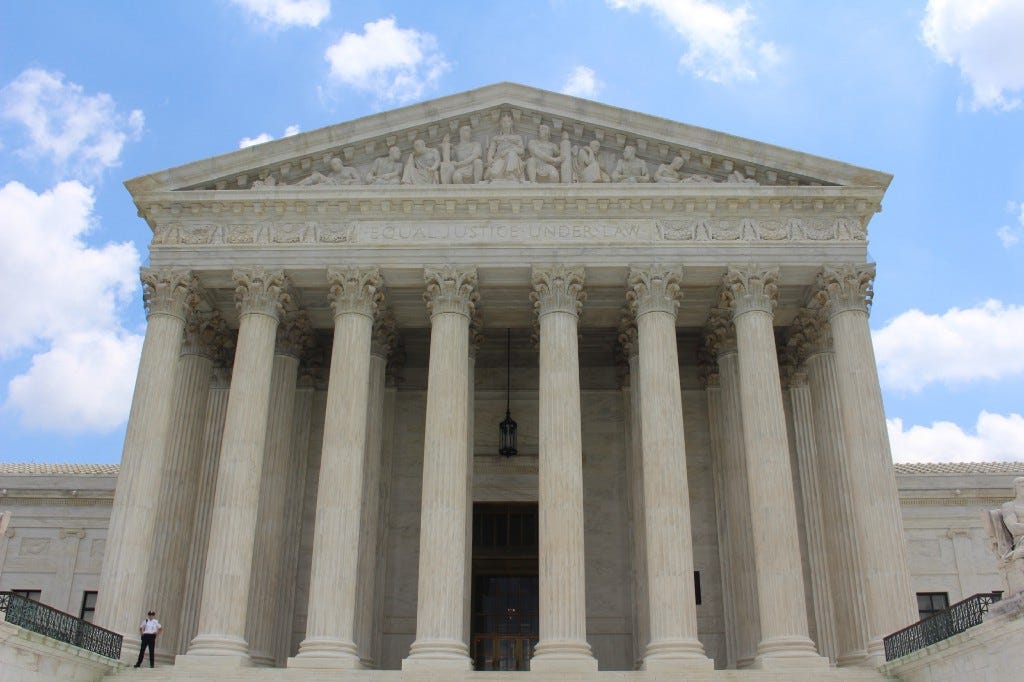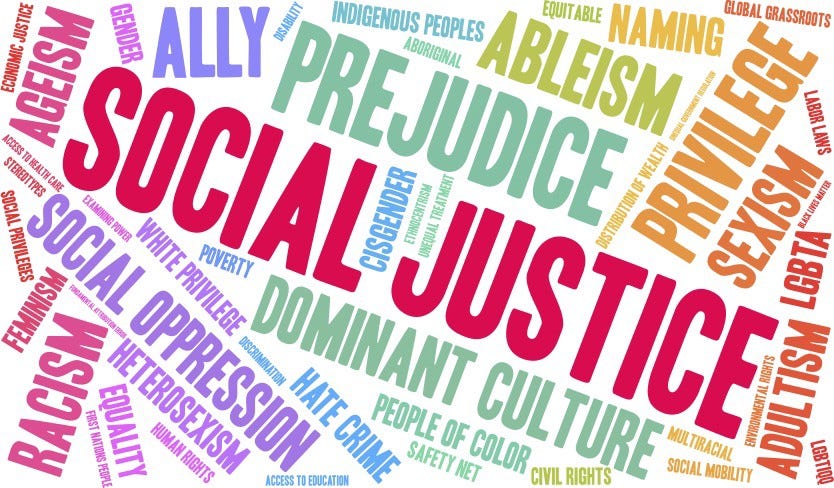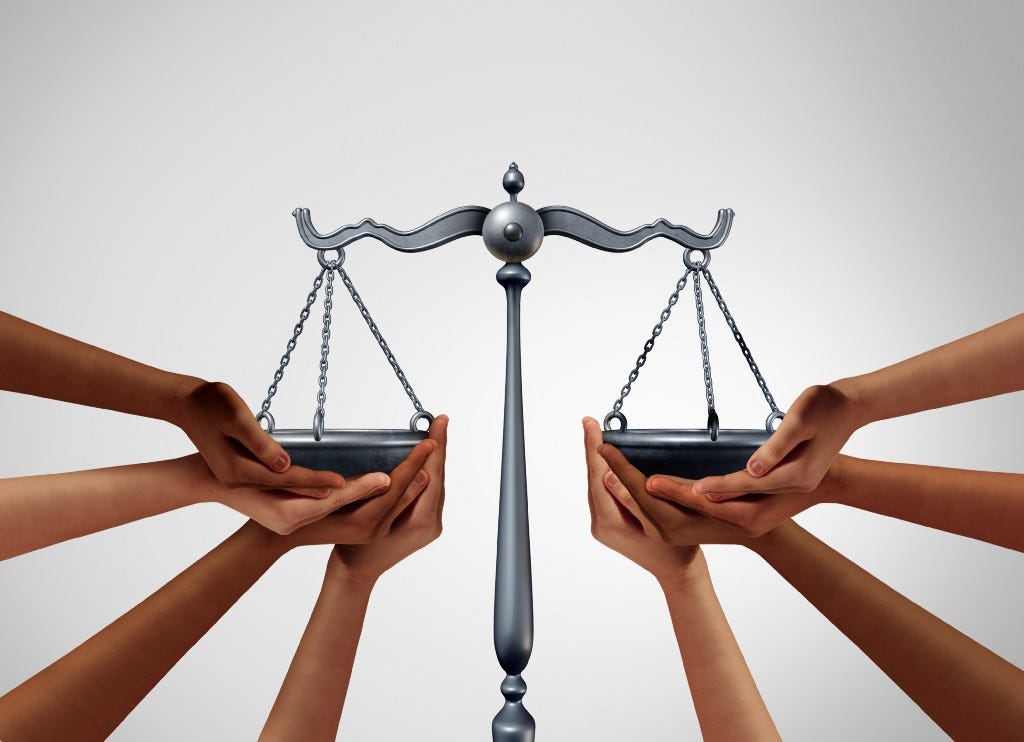By Jeryl Bier
Here is a round up of the latest and best writing and musings on the rise of illiberalism in the public discourse:
Tom Ginsburg: Don’t Pack the Court

As Democratic Party frustration grows with the current ideological balance in the Supreme Court, there is a rising chorus of voices calling to resurrect FDR’s court expansion proposal. Present day Democrats’ motivation mirrors FDR’s: pack the court with justices that will be friendly to their decidedly progressive agenda. Tom Ginsburg writes that while court reform may indeed be in order, a partisan restructuring is no more a liberal idea than it was 84 years ago.
…The entire bill is less than 100 words and does precisely one thing: It gives Democrats an opportunity to make four new appointments to the Supreme Court. Though it is called the Judiciary Act, it does not purport to address issues of federal jurisdiction, the size of appeals courts, or any of the technical matters that are traditionally the subject of such bills. Instead, it recalls President Franklin Delano Roosevelt’s failed proposal in 1937 to pack the courts to secure the New Deal. That proposal was rejected by Democrats as a threat to liberal democracy, and for good reason: If one party moves to pack the courts when it holds the Senate and presidency, the other side will likely do the same when the tables turn, and the courts will be viewed, even more than they already are, as just another partisan branch.
[…]
To fix the courts, one first has to diagnose the problem correctly. The problem that our country faces is the politicization of the courts, which has built up over many years but has intensified since 2016 when then-Senate Majority Leader Mitch McConnell refused to hold a hearing on President Obama’s nominee, Merrick Garland. The process of appointing justices to the Supreme Court has turned into an opportunity for partisan political mobilization and scorched-earth warfare, as the hearings for Brett Kavanaugh in 2018 and Amy Coney Barrett in 2020 showed. Gone are the days in which David Souter and Ruth Bader Ginsburg could be confirmed with 90 or more affirmative votes. Instead, Supreme Court appointments have become almost purely partisan affairs. Partisan packing of the Supreme Court would not end this cycle but simply exacerbate it.
Read it all here.
Helen Pluckrose: We Need Liberal Social Justice, Not “Critical Social Justice”
In a long piece at Robert Tracinski’s new site Symposium, Helen Pluckrose dissects “critical social justice” and explains its inferiority to “liberal social justice.” Despite common goals for a just society, Pluckrose contends that while the latter emphasizes individual worth and freedom, the former gets bogged down in group identity and power and conformity to established dogma.
Liberals on the left and liberals on the right might therefore disagree with each other on economic issues. What they agree on however, are the centrality of the individual, the importance of freedom of belief and speech, the value of tolerating different ideas, and the need for a consistency of principles in which the same rules and freedoms apply to everyone.
This is where those of us who are “liberals” in the widest sense of that word often find ourselves in opposition to the advocates of “Critical Social Justice.” This is clearly not because we are opposed to “social justice.” Indeed liberalism is a model for achieving social justice and it has been highly successful, making liberal democracies the most advanced in human rights and freedoms of all systems of government.
Critical Social Justice, however, is something very different from liberalism and, in fact, opposed to its understanding of social justice. It does not support the primacy of the individual but focuses instead on the group defined by identity. Despite its rhetoric of “diversity,” it is not tolerant of different viewpoints but instead seeks to impose its own as a moral orthodoxy. And Critical Social Justice is deeply skeptical of universalism, understanding the world instead as constructed of systems of power, privilege, and marginalization that need to be readjusted by applying different rights and freedoms to different groups.
Liberal concepts of social justice and critical concepts of social justice may well see themselves as seeking the same ends — a just society in which everybody is able to access everything society has to offer, but we have very different ideas of how to get there and, indeed, very different ideas of society.
Read it all at Symposium.
Jonah Goldberg: Keep Social Justice Out of the Courtroom
Last week, Pluribus published my essay The Case for a Common Language: On “Diversity”. As with my introductory post for Pluribus, I made an appeal for consensus on some key words (diversity and cancel culture) employed in current social and political conversations to improve communication between ideological opponents. Jonah Goldberg takes on “justice” in the wake of the Derek Chauvin trial and the flood of arguments that his conviction did not represent “justice” because the system is still “broken.” Goldberg’s not buying it.
Keith Ellison, the attorney general of Minnesota, went to a microphone right after the verdict. “I would not call today’s verdict ‘justice,’ however, because justice implies true restoration,” Ellison said. “But it is accountability, which is the first step towards justice. And now the cause of justice is in your hands.”
I get the point. But by this standard, there is no justice, ever, when a murderer is tried and convicted. This means that in murder cases — and many others — we should never say the culprit was “brought to justice.” We should say that they were “brought to accountability.”
I don’t mean to dwell on semantics here, but semantics have become the coin of the realm. Ellison, like so many others, subscribes to a definition of justice that falls under the rubric of social justice. I can write at great length (again) about the problem with the concept of social justice. But I’ll cut it short: Social justice is Calvinball for politics. It is an abracadabra word people use to justify the pursuit of power. Its elasticity makes the current uses and abuses of “infrastructure” seem scientifically precise.
The concept of social justice is bad enough in politics. Bringing it into criminal trials may not be evil in intent, but it would be evil in result. “[O]nly situations that have been created by human will can be called just or unjust, “ Friedrich Hayek observed. In other words, you can only hold individual people accountable for what they did or didn’t do.
Indeed, the whole argument of the Black Lives Matter movement unwittingly pays homage to this point. It is wrong for a policeman to see one black person and presume they are guilty of or complicit in the misdeeds or crimes of some other black person. There is no transitive property between one person committing a crime and another person being guilty of nothing other than superficially looking like that person. That’s the very racism BLM rightly decries. By the same token, however, no police officer is culpable for what another police officer has done.
Read it all at The Dispatch.
Around Twitter
Robert J. O’Neill on free speech:
Will this change the enthusiasm for the post office we saw in 2020?
Free Speech Union?
Is some discrimination worse than others?
E-Pluribus | Apr. 22, 2021 was originally published in Pluribus Publication on Medium, where people are continuing the conversation by highlighting and responding to this story.





